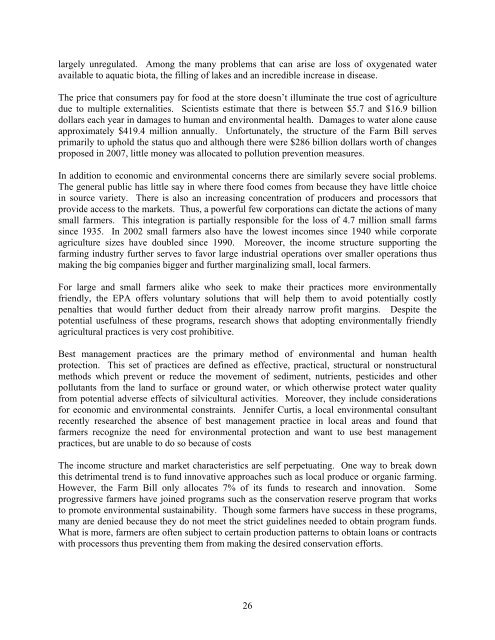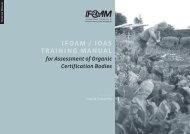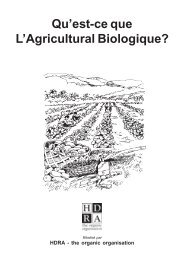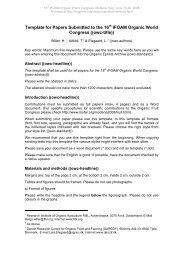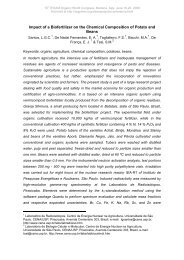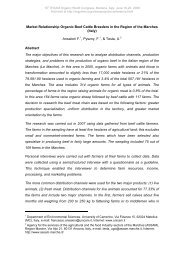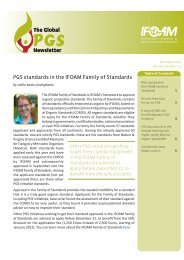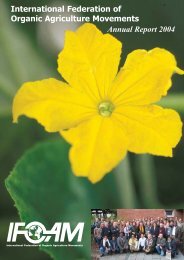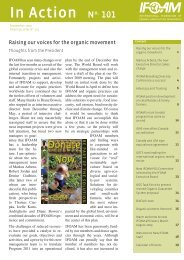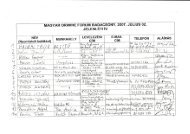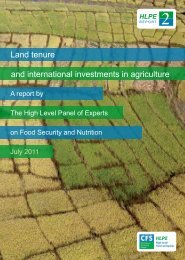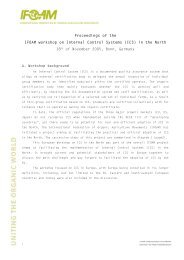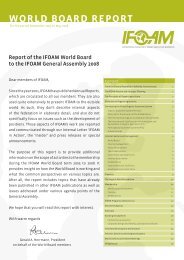Profiting from Best Management Practices: - DukeSpace
Profiting from Best Management Practices: - DukeSpace
Profiting from Best Management Practices: - DukeSpace
Create successful ePaper yourself
Turn your PDF publications into a flip-book with our unique Google optimized e-Paper software.
largely unregulated. Among the many problems that can arise are loss of oxygenated water<br />
available to aquatic biota, the filling of lakes and an incredible increase in disease.<br />
The price that consumers pay for food at the store doesn’t illuminate the true cost of agriculture<br />
due to multiple externalities. Scientists estimate that there is between $5.7 and $16.9 billion<br />
dollars each year in damages to human and environmental health. Damages to water alone cause<br />
approximately $419.4 million annually. Unfortunately, the structure of the Farm Bill serves<br />
primarily to uphold the status quo and although there were $286 billion dollars worth of changes<br />
proposed in 2007, little money was allocated to pollution prevention measures.<br />
In addition to economic and environmental concerns there are similarly severe social problems.<br />
The general public has little say in where there food comes <strong>from</strong> because they have little choice<br />
in source variety. There is also an increasing concentration of producers and processors that<br />
provide access to the markets. Thus, a powerful few corporations can dictate the actions of many<br />
small farmers. This integration is partially responsible for the loss of 4.7 million small farms<br />
since 1935. In 2002 small farmers also have the lowest incomes since 1940 while corporate<br />
agriculture sizes have doubled since 1990. Moreover, the income structure supporting the<br />
farming industry further serves to favor large industrial operations over smaller operations thus<br />
making the big companies bigger and further marginalizing small, local farmers.<br />
For large and small farmers alike who seek to make their practices more environmentally<br />
friendly, the EPA offers voluntary solutions that will help them to avoid potentially costly<br />
penalties that would further deduct <strong>from</strong> their already narrow profit margins. Despite the<br />
potential usefulness of these programs, research shows that adopting environmentally friendly<br />
agricultural practices is very cost prohibitive.<br />
<strong>Best</strong> management practices are the primary method of environmental and human health<br />
protection. This set of practices are defined as effective, practical, structural or nonstructural<br />
methods which prevent or reduce the movement of sediment, nutrients, pesticides and other<br />
pollutants <strong>from</strong> the land to surface or ground water, or which otherwise protect water quality<br />
<strong>from</strong> potential adverse effects of silvicultural activities. Moreover, they include considerations<br />
for economic and environmental constraints. Jennifer Curtis, a local environmental consultant<br />
recently researched the absence of best management practice in local areas and found that<br />
farmers recognize the need for environmental protection and want to use best management<br />
practices, but are unable to do so because of costs<br />
The income structure and market characteristics are self perpetuating. One way to break down<br />
this detrimental trend is to fund innovative approaches such as local produce or organic farming.<br />
However, the Farm Bill only allocates 7% of its funds to research and innovation. Some<br />
progressive farmers have joined programs such as the conservation reserve program that works<br />
to promote environmental sustainability. Though some farmers have success in these programs,<br />
many are denied because they do not meet the strict guidelines needed to obtain program funds.<br />
What is more, farmers are often subject to certain production patterns to obtain loans or contracts<br />
with processors thus preventing them <strong>from</strong> making the desired conservation efforts.<br />
26


